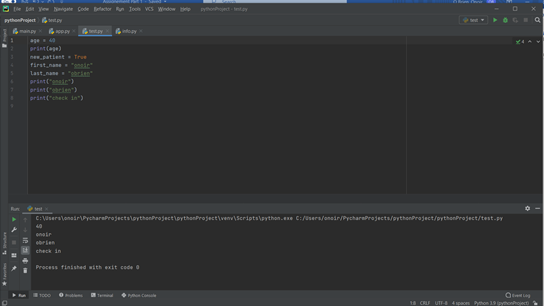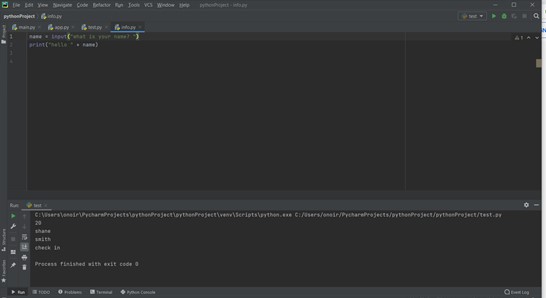In relation to the Digital Humanities, Stephen Ramsay once asked: “Do you have to know how to code?”
Ramsey’s articles make’s bold statements about Digital Humanities as a scholarly pedagogy and concludes that coding practice is fundamental to the DH world; reading his articles feels as though he is winking to those who agree or disagree with the trajectory his work has taken. Ramsay’s argument about the relevance of coding for all digital humanists was one of his most controversial remarks, which he himself considers harder to decipher.
‘But I am worried that my late remarks at mla 11 are touching a nerve in a way that is not provocative (in the good sense), but blithely exclusionary.’ Ramsey (On Building).
Becoming a DH scholar, Ramsey’s statement seems both true and problematic, as my technological skills and understanding of DH are shaky at best. When I am asked what DH is, I have discovered that my answer varies depending on who I am talking to. As Ramsey suggests DH is broad, and I have noticed because of the subject’s hermeneutic nature that I can describe the subject as ‘airy fairy’ or very ‘technical’?
I wanted to start this discussion with a “No,” but beneath it all, I wondered if Ramsey is partially correct. As an art graduate, I have had questioned, “Can a person be an art student and not know how to draw?” a similar conundrum just different context, as I have always believed that before you declare yourself an expert in any field, you must first understand the fundamentals of the curriculum’s concepts. When I was reading ‘On Building,’ I felt like Ramsey was pointing the whole article at me, and I was nervous because I am a DH student who does not know how to code! Is it true that I am a hypocrite? And then it hit me: the sudden realization that I cannot give this debate any credibility unless I at least learn to code.
For the first time, I researched what coding programs would be appropriate for me and downloaded a coding program called ‘Python.’ I spent hours downloading and looking for an online mentor who could teach me the fundamentals to comprehend Ramsey’s remark.(breezojr, 2020; Programming with Mosh, 2020; replit, no date)
‘But just stating things like this (as I soon discovered) really does touch upon a number of anxieties both in dh and among those who bid participation. “Learn to code because it’s fun and because it will change the way you look at the world.” Ramsey
I attempted code and had a euphoria experience when I finally created my own ‘string’ and understood ‘variables’. I had the program say ‘hello’ to me, I am sure with practice I could create extraordinary digital phenomenon’s, but alas I still do not have the interest to give it my full attention. I already feel like I will never reach parity and I conclude that DH is not an individual, but rather a community of subjects created to recognize, develop, build, analyse, and research the digital and its impact on humanity, and as the Python tutor asks me to progress to the next stage,
I think to myself; you may be the best programmer but that does not render you a DH student; coding is only one of many principles, and yes, it may be more relevant to some, but unless you have the theory of humanities instilled you are lacking a crucial component to the subject; after all, it is called ‘Digital Humanities’.
As I dabble in coding, I now fully support children learning code in school as this is the age to incorporate a subject that requires continuous learning and development. My daughter’s primary school 3rd class studies includes ‘learning to code’, so, like DH studying parent, I read articles about the why we should teach code to children, and after a few readings, I blushed at my ignorance as one article described, coding as digital literacy and part of new age development, and like reading, writing, maths, art, it allows the child to comprehend the technical world around them and to explore the ‘why’, ‘how’ and ‘build’ within the digital age. (Bonfiglio, 2018; 5 Reasons why Coding is Important for Young Minds – Learning Resources Blog, no date)
In an interview with lareviewofbooks.org, DH is described as a hermeneutic subject and according to Ted Underwood, a professor and scholar of English at the University of Illinois, ‘it isn’t that digital means nothing, but rather that it means too much.’ Underwood compares coding to near and distant reading, describing the concepts in the subject as being equivalent to close reading. Ramsey’s claim that you are not a DH student if you do not “build” is implicitly reiterated by Underwood, who uses the word “Building” and its relevance to DH but not as the end all and not to be absolutely ignored, but perhaps create a learning threshold for the student within the curriculum, a self-revolutionary journey, and if the student does not take the road to coding, that is fine too!
‘…I do know that coding is useful for distant reading. Some scholars have delegated the coding, and good work can be done that way. Even writing can be delegated in a pinch. We could do this by dictation, and it could be done well. But if you were building a curriculum from scratch to teach people how to do distant reading, then of course you would teach them how to write and also how to code, and statistics, and literary history.’ Ted Underwood(‘Open data’, 2012)
Yes, I am the Digital Humanities Student who detested Painters who could not draw in art college, and no matter how hard I try to argue, google, and research an argument to completely disagree with Ramsey, his harsh words cut, and the truth is that I can’t code. However, it is less embarrassing for me to confess that I am teaching myself to code because I refuse to be the student who totally disregards its existence. I refuse to be the student who claims to be an artist but is unable to draw!
‘Community and collaboration are undoubtedly signs of the spirit, but to say that disciplinary definition doesn’t really matter is to eschew the hard reality of life in the modern academy. Digital Humanities is not some airy Lyceum.’ (who’s in who’s out)
DH’ers may not need to be skilled coders, but the least we can do as academics is learn the fundamentals of this new age attribute and its importance in the modern world, or as programmers like to say, know ‘what’s under the hood.(What does ‘under the hood’ mean in programming? – Quora, no date)
If you were to ask me in a simple ‘’Yes” or “No” answer if a Digital Humanities student needs to know how to code
I would have to answer ‘Yes’.
‘’I say “yes.” So, if you come to my program, you’re going to have to learn to do that eventually’’ who’s in who’s out”. Ramsey.
To view References & Bibliography please click here.

